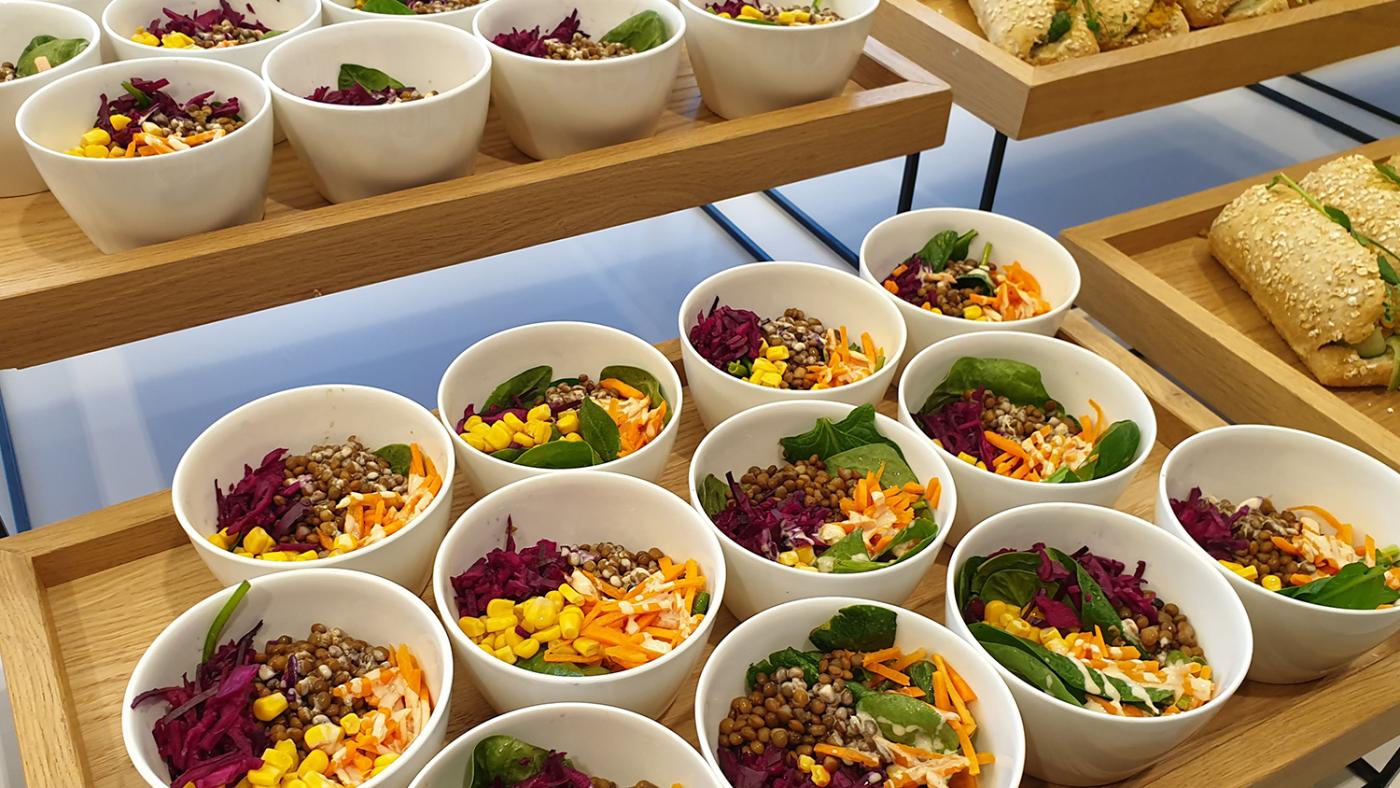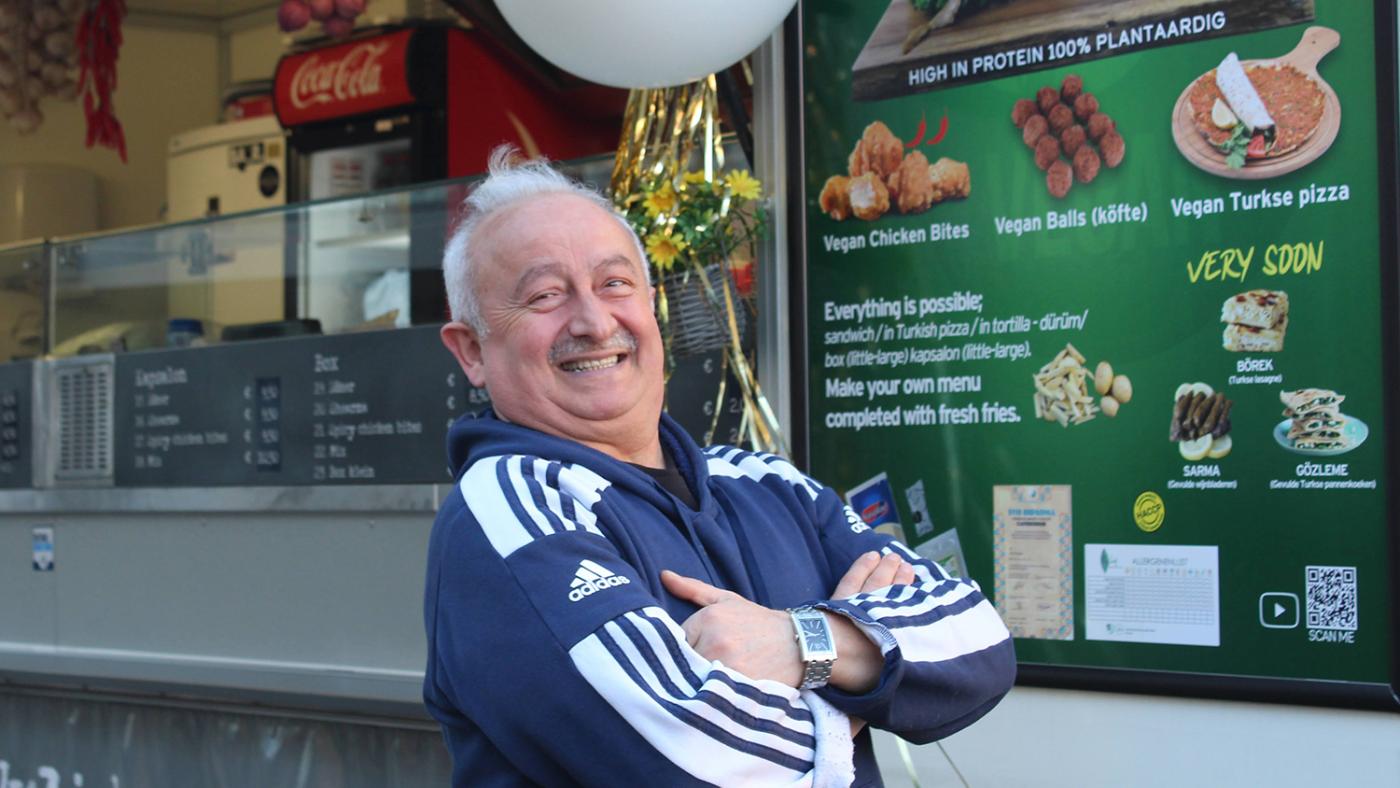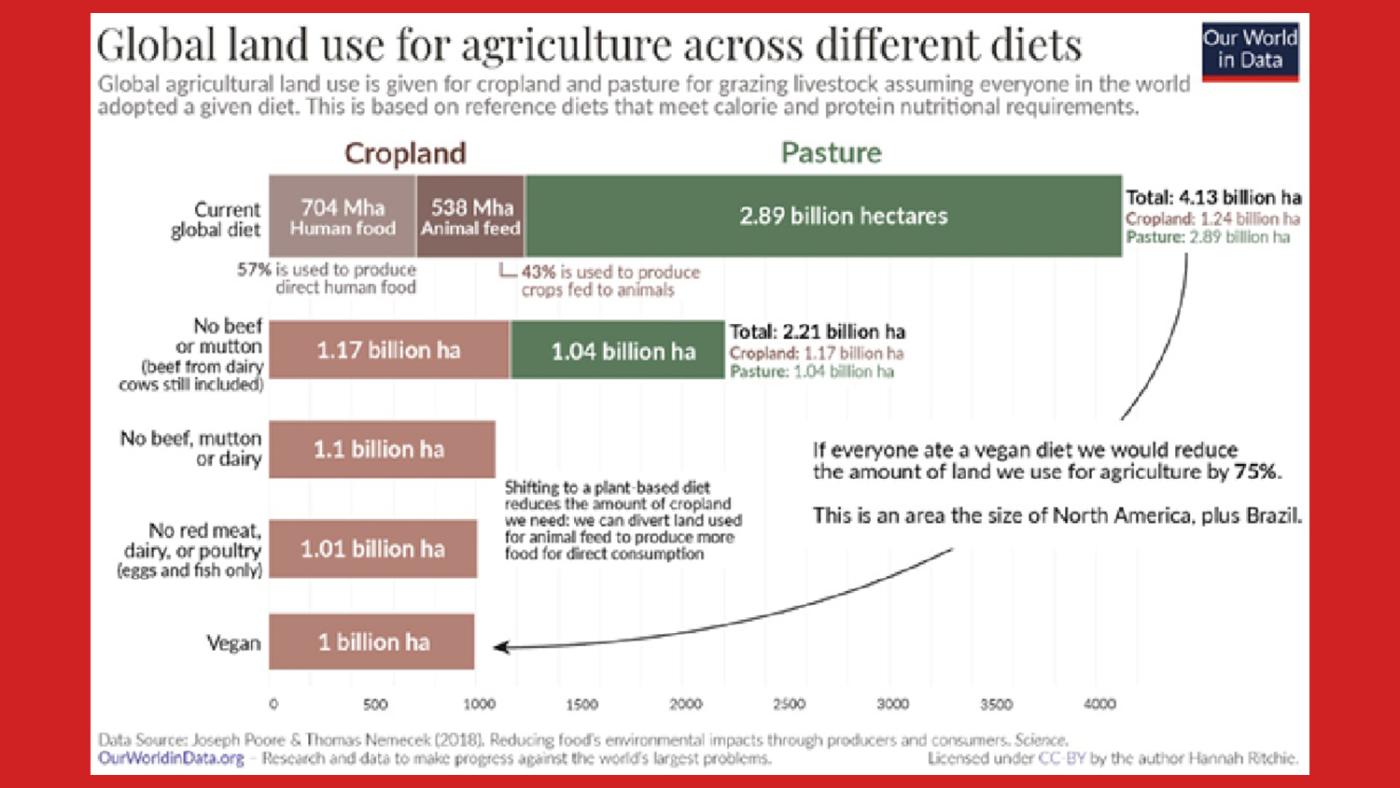Where is that plant-based campus, UU?
Plant-based Universities wants UU to get rid of animal products in canteens

What if your favourite food on campus was both tasty and sustainable? Take Mo’s food truck, for example, where you can get a delicious vegan Turkish pizza or a plant-based shawarma sandwich. What if this was the norm everywhere? After all, a fully plant-based campus is not only possible but also necessary. Utrecht University could take the lead in this regard, following in the footsteps of several other universities.
The food sector is responsible for 30 percent of all greenhouse gas emissions in Europe. Meat and dairy are by far the biggest culprits. Livestock farming is also the main cause of deforestation and loss of biodiversity, especially in tropical areas, but it happens here in the Netherlands too. Just look out the window when you are on the train. What many people call "nature" are actually meadows where forests once stood.
We also must take the water consumption of our food into account. Most of the world’s available fresh water is used by livestock farming. While we worry about how long we shower, a cheese sandwich uses as much water as standing in the shower for an hour.

Mo in front of his food truck. Photo: DUB
The university as a role model
Our current food system is simply unsustainable. A study from the University of Oxford shows that transitioning to a plant-based food system is essential to tackling the climate and biodiversity crises. This transition would allow us to free up three billion hectares of land – that's three-quarters of the world’s agricultural land – and still feed the same number of people.

The question is: how do we realise this transition? Many people start with themselves, by flying less, taking shorter showers, and eating more plant-based foods. That's how I started too. But if we do this one by one, we won't make it, unfortunately. We need big steps and that starts with our universities.
Universities play an important role in stimulating social change. After all, they are not only centres of knowledge and innovation but also places where the next generation comes of age. This combination makes universities breeding grounds for progress, as evidenced by the emergence of many student movements such as Plant-Based Universities (PBU), an international movement that encourages universities to embrace fully plant-based catering.
In the United Kingdom, twelve universities, including the University of Cambridge, have already decided to switch to plant-based catering. Here in the Netherlands, Erasmus University is showing it can be done. The Rotterdam-based university aims to offer plant-based food only by 2030 and is already taking steps to reach that goal. For example, it has introduced a permanent subsidy of 25 percent on plant-based meals, making them cheaper. As a result, 75 percent of meals sold on their campus are plant-based. This shows that the transition to plant-based canteens is not only within reach but it can also be affordable to students. So, why shouldn't UU and its caterer, Eurest, match this success or perhaps even surpass it?
Petition
Inspired by the success of such initiatives, my friends and I started a campaign on behalf of Plant-Based Universities. We started a petition in February, which has gathered over 1,000 signatures so far. In addition, we were on campus every week to talk to other students about the petition. We've noticed that many of them support our initiative, even students who eat meat.
Change at the university level often has a snowball effect. When universities take the lead in sustainable initiatives, they send a powerful message to the rest of society, which can lead to larger cultural shifts. Moreover, it is easier for students to start eating more plant-based food if it becomes the norm, especially if the offer is attractive and affordable.
UU's ambitions
According to its Sustainability Plan (document in Dutch only, Ed.), Utrecht University aims for 80 percent of its food supply to be plant-based by 2025. But is this ambition visible on our campus? To find out, I decided to explore the Educatorium canteen with two friends.
On the menu: a poké bowl, two burgers, two hot rice meals, five types of pizza, a salad, and a variety of Halal street food and sandwiches. Unfortunately, there were no burgers or poké bowls without animal products. The hot meals had a vegetarian option that, according to the chef, could be served plant-based if the sauce was omitted. The pizzas had tiny letters at the bottom of the board saying: “Vegan available on request.” So, it’s quite a hassle to make a sustainable choice.
Of the eighteen meal options that day, only three were without animal products. The only plant-based choices were a vegan doner wrap, a tabouleh salad and a sandwich with vegan tuna salad. The latter was delicious, by the way.

UU, take action!
It is clear that UU still has a long way to go to reach its target of 80 percent plant-based meals by 2025. We know for a fact that the transition to a plant-based campus is not only feasible but essential for a sustainable future. That's why we are calling on our university to follow the example of Erasmus University and accelerate the transition to a plant-based offering. Why wait?